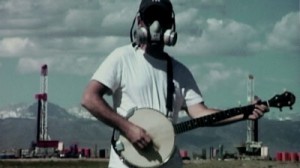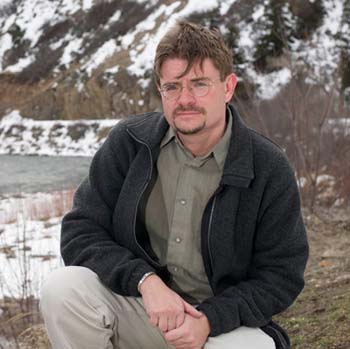The film Gasland won the Special Jury Prize for documentary when it debuted at the Sundance Film Festival this year, and it’s been turning heads ever since. The film depicts the journey of director Josh Fox from his home in Pennsylvania, where gas drilling is beginning to boom, to the West, where it has been booming for years.Gasland tells the story of people who say their land, water and their health have been destroyed by the industry.
The documentary has been making the rounds across the country. It’s scheduled to appear on HBO on June 21. We caught up with Fox at Telluride MountainFilm.
NEW WEST: For you this really was personal.
JOSH FOX: It’s personal now. I could have a well pad going in a mile and a half from my house. We’re really, really worried. This is coming and it’s coming full bore and we’re trying to stop it. That’s the truth. The truth is, this activity and an area where people live don’t go together.
You talk about using this film to bridge the East and the West, and for you, it really was a journey to the West.
I had taken a road trip across America in 1994, and I fell in love with the West. With Wyoming, with Colorado, with New Mexico, with Arizona, Utah. When I heard this was going on in the West, I wanted to see if the places I loved were still there. I wanted to see what the effects were. I wanted to see how this had changed the area. I also wanted people on the East Coast to benefit from the experience of what had happened here.
Thankfully, there were so many people who were so willing to do that with me and so generous: to educate me and the audience of this film and the people on the East Coast who are trying to scramble and stop what happens inGasland from happening there as has happened here.
The ambition is definitely to stop it there and call for a moratorium on this kind of drilling until we can figure out what’s going on across the United States and for tighter regulations to start to protect people in Colorado, Texas, Wyoming who are getting sick.
People are being poisoned in their own homes by these rigs that are off-gassing volatile organic chemicals directly into their living rooms, and they’re having severe, severe health problems.
In the film, whether you’re in Colorado or Wyoming or Arkansas, there’s a certain sameness, not just complaints about the chemicals in the water and in the air, but in everyday people who suddenly have gas drilling in their backyards. Did that strike you as you were making it?
The industry says wherever they go, this is going to be different than we did it in Colorado, this is going to be different than we did it in Texas. I found the same story everywhere. Air pollution. Water contamination. Health problems. Rampant land destruction. People feeling like they’re no longer in control of their own lives.
>You’re first words in the film were, “I’m not a pessimist.” I’m still not a pessimist. I do think the truth will out and that once people understand what is actually happening there will be change in this industry.
Listen, we’re not going to survive another 50 years, another 20 years, of fossil fuels. There are whole islands in the South Pacific that are already disappearing because of the rising sea level. If we continue to burn fossil fuels, we’re not going to like the results of this. We’re going to have hundreds of millions of climate refugees. We’re going to have huge adverse weather effects. It’s going to continue.
We have to make a push. We have to move to renewable energy. We have to do it as fast as we possible can. The natural gas industry is standing in the way of making the true transition that we have to make: a transition to clean energy, to renewable energy, to zero emissions.



